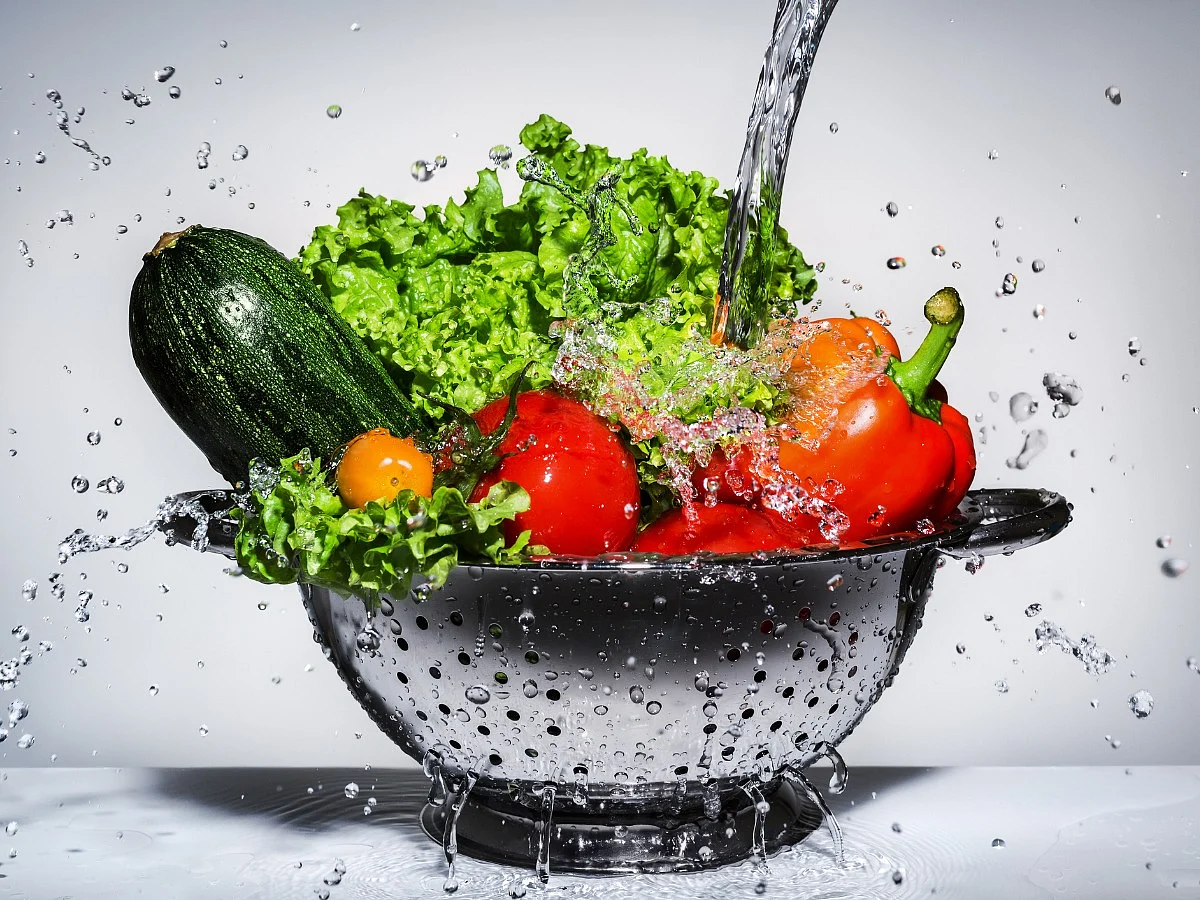7 Water-Rich Foods To Keep You Hydrated in Summers
Here is a list of foods that will keep you hydrated for longer period in summers besides water.

advertisement
Summers are round the corner and we cannot emphasize enough on the fact that water is essential for us during the time when high temperatures and heat waves are at its peak. People forget to hydrate themselves and often ignore the symptoms of dehydration like fatigue, headaches, skin problems, muscle cramps, low blood pressure and a rapid heart rate. These are due to heat but dehydration.
Dehydration is the mot common problem during the summers and it can cause immense problems of not taken care of. Prolonged dehydration can lead to serious complications like organ failure as well. Doctors recommend drinking eight glasses of water everyday to maintain optimal hydration levels.
People can also fulfill their hydration levels with the help of foods and fruits filled with water. Let's know the common food items that have high water content and can be beneficial for you in summers.
Watermelon
Watermelon is a healthy and hydrating fruit that can be eaten daily. I cup or one serving of watermelon (154 gm) contains you can eat 118 ml of water along with the nutrients like fiber, vitamin C, vitamin A and magnesium. It is a low-calorie fruit and one cup has 46 calories.
Due to the high water content, watermelon has low calorie density thus even high quantity of watermelon can be eaten without thinking about calorie count. The low calorie trait makes it a perfect fruit for weight loss that promotes fullness by reducing your appetite. Watermelon is rich in powerful antioxidants like lycopene, a compound known to reduce oxidative damage and linked to heart disease and diabetes.
Strawberries
Strawberries also have a high water content that make them an extremely hydrating fruit. Strawberries have about 91% of water weight and regular consumption can contribute to your daily water intake. They are also a rich source of fiber, disease-fighting antioxidants, vitamin C, vitamins, minerals, folate and manganese.
Research proves that regular consumption of strawberries reduce inflammation thus providing protection against heart disease, diabetes, Alzheimer’s and various types of cancer. You can use strawberries in your smoothies, salads, sandwiches, and wraps.
Peaches
Peaches are a very nutrient-dense and hydrating fruit with 90% of water weight. They are rich in vitamins and minerals like vitamin A, vitamin C, B vitamins and potassium. Peaches are beneficial for the skin and have high fiber content and various disease-fighting antioxidants like chlorogenic acid.
Oranges
Oranges are the healthy, hydrating fruit that have various health benefits and around one orange contains half cup of water along with fiber and several nutrients like vitamin C and potassium that boost your immune function and heart health.
Oranges are also rich in disease-fighting antioxidants like flavonoids that prevent cell damage due to its anti-inflammatory properties. The water and fiber in oranges promote feelings of fullness thus controlling appetite. Moreover, citrus fruits like oranges provide protection against kidney stones. due to the presence of citric acid that bind calcium oxalate thus flushing out the toxins responsible for stone formation.
Cucumbers
Cucumbers are known for their high water content and their hydrating property. It is almost entirely made of water with small amount of nutrients like vitamin K, potassium and magnesium. As compared to other water-rich vegetables, cucumbers are lowest in calories and about 52 grams of cucumber has 8 calories that makes it apt for weight loss.
It’s easy to incorporate cucumbers into your diet through salads, sandwiches, and smoothies.
Lettuce
Lettuce has several health benefits. It is rich in nutrients like vitamins K and A that have proved beneficial for bone health and healthy immune system. One cup (72 grams) of lettuce provides more than a quarter cup (59 ml) of water and 1 gram of fiber. It provides 5% of your daily needs for folate thus being important for pregnant women, as folate can help prevent neural tube birth defects.
The combination of water and fiber in lettuce makes it filling though it has less calories. 1 cup or 72 grams of lettuce has only 10 calories and it can be used in salads, burgers, sandwiches, wraps, etc. of a tortilla to substitute for less-hydrating grains.
Plain Yogurt
Plain yogurt contains lots of water and nutrients that are beneficial for the overall health. 1-cup (245-gram) of plain yogurt has more than 75% water. Plain yogurt has several vitamins and minerals like calcium, phosphorus and potassium that promote bone health. Yogurt is a great source of protein, providing more than 8 grams and contributing 17% of your daily needs in a cup.
Regular consumption of yogurt helps in weight loss due to the appetite-reducing effects of its high water and protein contents. Try eating plain yogurt instead of flavored one since flavored ones have added sugar, responsible for obesity, heart disease, and diabetes
(At The Quint, we question everything. Play an active role in shaping our journalism by becoming a member today.)